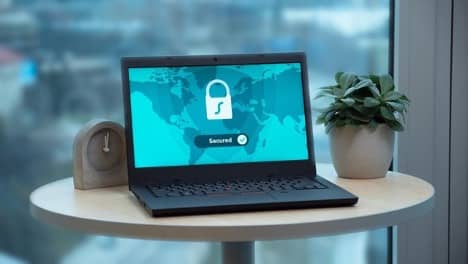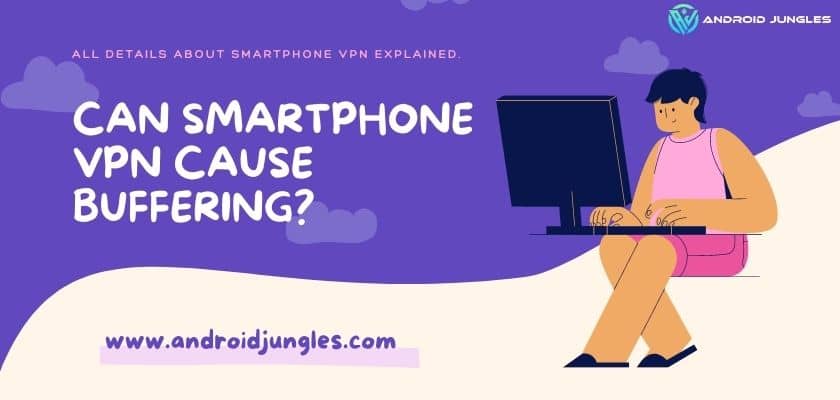Hey people, In this article I will be sharing with you all the details about Smartphone VPN. And also we will discuss about “Can Smartphone VPN Cause Buffering?”
So, let’s start.
Basic Details –
Virtual private networks are growing rapidly. New technologies are being added to these to enhance their capabilities every day. With that said, they are not only limited to PCs only but are also available on other devices.
The question is, are they effective on smartphones too? Can they provide smooth video streaming without buffering? One way to know is to get surfshark on Android and observe its performance yourself.
But there might be certain issues due to which you may not be able to observe its actual performance. So to help you out, we wrote this article. In this article, you will learn whether a smartphone VPN can cause buffering or not.
So, let’s get into it!
Must checkout – How To Remove Credit Card From PS4? Explained In Easy Steps.
Now, let me share some questions that you might have about Smartphone VPN.
Is Smartphone VPN Reliable?

Smartphones are one of the most used devices in our daily lives. They have become an integral part of our lives, and we use them for everything from making calls to sending emails to watching videos online.
But what if we told you that your smartphone does not just meet all those needs but exceeds them by providing better and faster services than any laptop or desktop computer could ever do? How would you feel? Probably excited, right?
But whatever you do, you may need an encrypted connection sometimes. For such applications, you may start using VPNs. You must keep in mind that smartphone VPNs are no different from PC VPNs.
They often use the same servers and same connection encryption methods. However, not all of them are the same, due to which their performance may be different too.
Also, read – The Must-Have Smartphone Accessories That You Need to Buy In 2022.
Why Smartphone VPNs Cause Buffering?
Now the question is, why would smartphone VPN cause buffering? How can you get rid of such a situation and enjoy smooth streaming? To know all this, you must know how does a VPN work first.
When you connect to the internet through a VPN server at the ISP level, you are connecting to the ISP’s network. If you don’t want to reveal your browsing history, you would want to hide from others who may try tracking you down by analyzing your data.
This is where a VPN comes in handy. It encrypts your traffic, so even if someone gets hold of your IP address, he won’t be able to determine anything about your activities since the information travels over encrypted channels. Such a service can be installed on the device itself or even downloaded as an app.
Each VPN has its own set of servers that provide connection access to clients. Now the most important thing is the number of servers that a network has.
If your VPN has many servers and each one has sufficient resources, you won’t have any issue at all. Having that said, if your provider has limited and congested servers, you will face many issues.
Server Distance Matters Too!
The next important thing is the distance of the server. If a particular server is located far away, you may encounter problems while downloading movies.
This is because of the long time taken to download content. As we mentioned before, bandwidth matters for streaming high-quality media files. But the location of the server doesn’t have much impact when it comes to streaming slow-loading website pages.
But if a server’s location makes a difference here, it should make more sense to you.
Another way of looking at things is the type of cloud service providers offer. If you are connected to a managed service, there’s a good chance that you’ll experience great speeds.
When you’re on an unmanaged connection, not only do you worry about speed, but you also have the possibility of being disconnected at any given moment. So, it’s up to you to choose wisely!
Last Minute Thoughts!
To sum it all up, smartphone VPNs are not different than the ones for PCs. They have the same limitations and restrictions. However, if you experience lag and buffering, then you might want to investigate your VPN network a little.
Make sure that the VPN has a lot of servers, and you can easily connect to the nearest one. Also, keep in mind that the closer a server is, the better chances you have of experiencing great speeds.
If your mobile phone supports IPv6, then you should definitely consider using one now. You just need to know how it works and what advantages it gives. IPv6 offers users unlimited connectivity. You can surf the web 24/7 without worrying about running out of bandwidth.
So, that’s all from my side.
If you have any questions about Smartphone VPN or surfshark VPN let us know in the comments.
Happy Androiding…..
